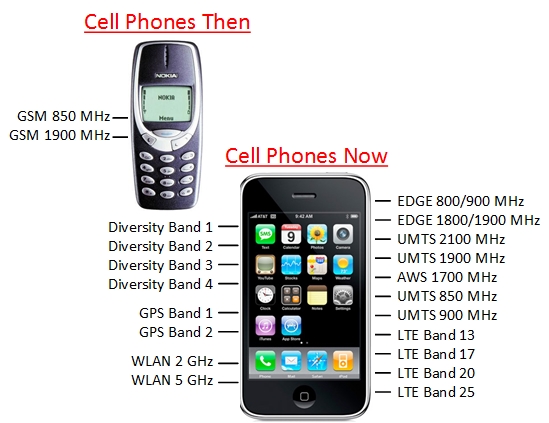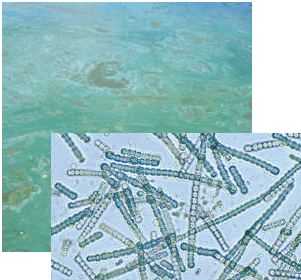Broadly, research in the Wireless Systems Lab focuses on developing novel high-speed analog and mixed-signal circuits for next generation wireless communication and environmental monitoring systems with special emphasis on reconfigurability. Current, on-going research projects are focused in the following areas:
- Reconfigurable circuits and systems for concurrent multi-band/multi-mode wireless communication
- Circuits and systems for real-time environmental sensing
- Circuits and Systems for wireless energy harvesting
The Wireless Systems Lab is always looking for qualified individuals interested in pursuing their PhD or MS. Interested students should contact Dr. Neihart with their full CV and GRE scores.
Active Research Projects:
Reconfigurable Circuits and Systems for Concurrent Multi-Band RF Front-Ends

Project Description
With mobile technology becoming almost ubiquitous and with the types of enriched features and services that are available to the end user, mobile devices are being required to support higher data rates. Unfortunately, this is resulting in systems that are now required to support communication in many different, non-contiguous frequency bands spread between 400 MHz and 6 GHz.
To meet these needs many current mobile devices employ multiple, parallel, single-band RF front ends, each tuned to operate in a specific frequency band. This approach is, ultimately, unsustainable as new wireless standards continue to be introduced. This project focuses on the development of highly reconfigurable RF circuits for use in multi-band, multi-mode wireless communication systems.
Current Research Team:
Dr. Nathan M. Neihart, Yifei Li, and Byron Montgomery
More about this project.
With mobile technology becoming almost ubiquitous and with the types of enriched features and services that are available to the end user, mobile devices are being required to support higher data rates. Unfortunately, this is resulting in systems that are now required to support communication in many different, non-contiguous frequency bands spread between 400 MHz and 6 GHz.
To meet these needs many current mobile devices employ multiple, parallel, single-band RF front ends, each tuned to operate in a specific frequency band. This approach is, ultimately, unsustainable as new wireless standards continue to be introduced. This project focuses on the development of highly reconfigurable RF circuits for use in multi-band, multi-mode wireless communication systems.
Current Research Team:
Dr. Nathan M. Neihart, Yifei Li, and Byron Montgomery
More about this project.
Development of a Biosensor for Detection of Toxic Microcystin in Fresh Water

Project Description
Every year, hundreds of livestock are killed and more are sickened by ingesting cyanotoxin-contaminated water and there is evidence that toxins accumulate in food chains. State-of-the-art approaches to diagnosing contaminated waters are currently performed in diagnostic laboratories requiring days to complete. There is a critical need for real-time, in-field detection schemes for cyanotoxins.
Our long-term goal is to develop a low cost (~$10), pen-sized, fully integrated real-time CMOS sensor that can be dipped into questionable water and within minutes give quantitative measurements of toxin concentration as low as 0.01% of the WHO limit for safe drinking water.
Current Research Team:
Dr. Nathan M. Neihart, Dr. Degang Chen, Dr. Emily Smith, Dr. Wilson Rumbeiha, Sara Neshani, and Huanhuan Zhang
More about this project.
Every year, hundreds of livestock are killed and more are sickened by ingesting cyanotoxin-contaminated water and there is evidence that toxins accumulate in food chains. State-of-the-art approaches to diagnosing contaminated waters are currently performed in diagnostic laboratories requiring days to complete. There is a critical need for real-time, in-field detection schemes for cyanotoxins.
Our long-term goal is to develop a low cost (~$10), pen-sized, fully integrated real-time CMOS sensor that can be dipped into questionable water and within minutes give quantitative measurements of toxin concentration as low as 0.01% of the WHO limit for safe drinking water.
Current Research Team:
Dr. Nathan M. Neihart, Dr. Degang Chen, Dr. Emily Smith, Dr. Wilson Rumbeiha, Sara Neshani, and Huanhuan Zhang
More about this project.
